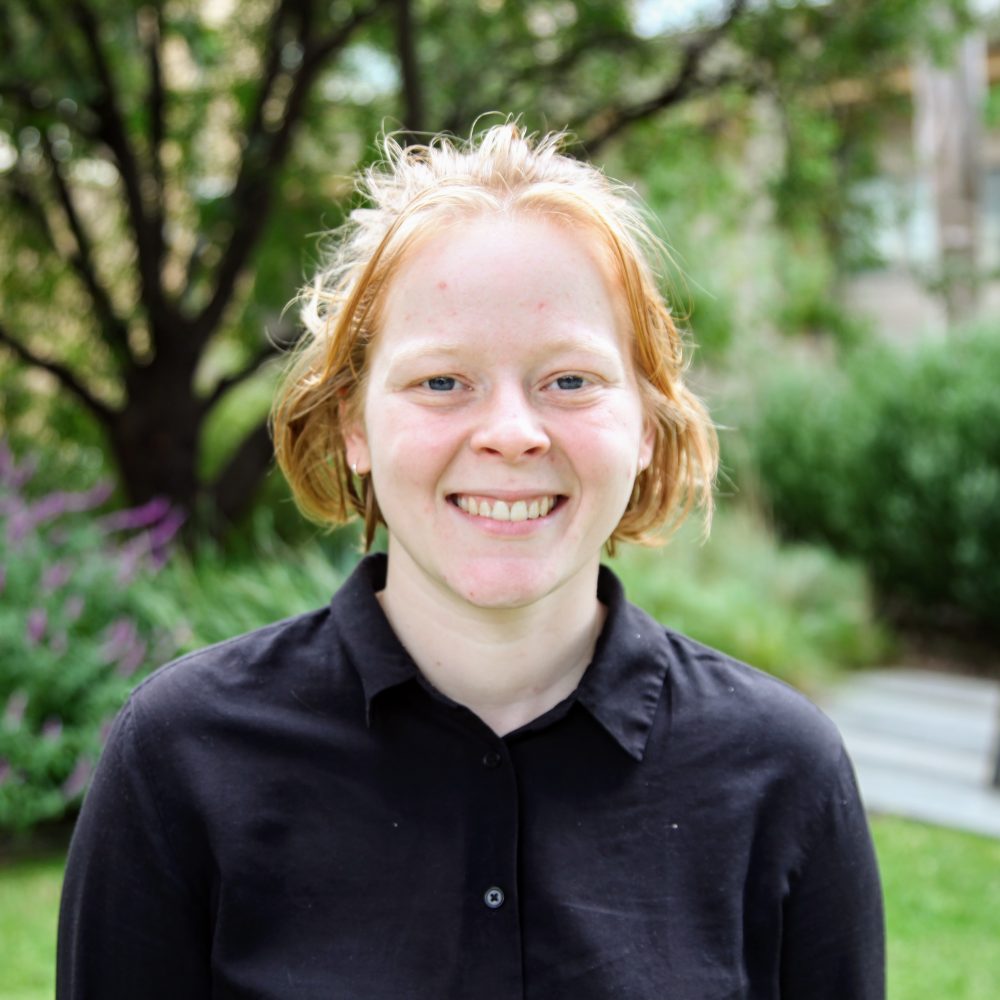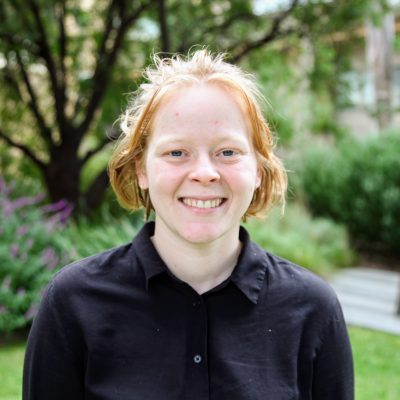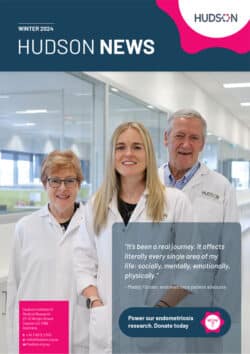Alexandra McAllan is a member of the Nucleic Acids and Innate Immunity Research group in the Centre for Innate Immunity and Infectious Diseases.

Areas of interest
COVID-19 Inflammation and cancer Influenza Lupus
Research group
Nucleic Acids and Innate Immunity

Alexandra McAllan
Degree:
PhD student
Research Group:
Research Centre:
Area of study:
MicroRNAs and bioinformatics
Supervisors:
Year of enrolment:
2021
Why did you choose Hudson Institute and your research group?
In 2019, I actually got in contact with my supervisor, Associate Professor Michael Gantier, about another project our group was working on. To my dismay, it turned out that that project was already taken, but I was inspired by the passion he showed for the work our lab does and got hooked on my bioinformatics project instead. I did an Honours year with the lab in 2020, and was lucky enough to be able to stay on as a PhD student in 2021. What really drew me to Hudson Institute was the amazing collision of so many disciplines and fields of study in one place, and the keen curiosity and interest of researchers in what they do.
What is your research about and what do you hope to achieve?
My research centres around microRNAs, tiny molecules in our cells that play an important role in controlling gene expression. Each microRNA comes in multiple forms, and I am working to categorise the molecular differences in these microRNA isoforms between cells, as well as in cases of disease such as COVID-19 infection and cancer. Through my research, I hope to find out whether microRNA isoforms can be used as a biomarker to detect disease, and to develop tools to help researchers understand and harness the diversity of microRNAs between different cells.
What is it like being a student at Hudson Institute?
Being a student at Hudson Institute can really be whatever you want to make it – no matter what you want to pursue after studying, there are constant opportunities to engage with and develop your interests. Students are never seen as lesser than senior researchers, and everyone around you is incredibly supportive and wants to help you succeed. Something I particularly love is the curiosity and engagement that is fostered through weekly seminars from researchers within and between Centres, and the occasional broader seminar exploring the intersection of, for example, gender, sexuality, or disability with medical research. These are just a few of the ways that Hudson Institute maintains a culture of collaboration and inclusivity that is lovely to be part of.
What opportunities have you had at Hudson Institute?
Despite my time as a student being occasionally overshadowed by lockdowns and travel restrictions, I have had the opportunity to attend several conferences and symposiums, which has been a great experience. Through a more social lens, being a Centre Representative in the Hudson Institute Student Society has been a great opportunity for me to get my head out of coding and meet people from other Centres.
How will your research help others?
With a bit of luck and hard work, I hope that my research will lead to a new way to use microRNAs to detect disease, and to a greater understanding of the complex microRNA landscape within all our cells.

